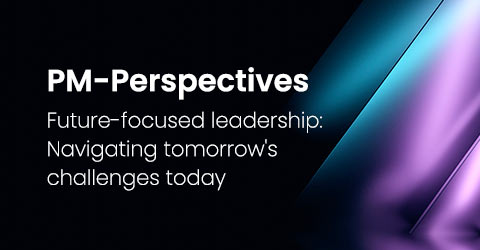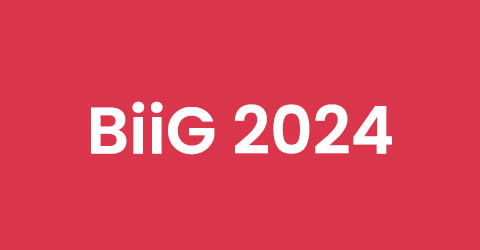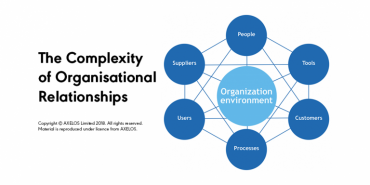Measuring Value from your Projects
What is it that makes a project successful? Is it if the project comes in on time and on budget? If the product is built within scope? Or is it measured by customer satisfaction with the delivered product or service?
Traditionally, project managers have measured and managed time, cost, quality and scope. But by focusing only on these elements, can we truly say whether a project was successful or not?
Take the Sydney Opera House for example. The project delivered a world renown icon that attracts 10.9 million tourists every year. Yet when we look at the project itself it was almost 1400% over budget and delivered 10 years later than expected. Not great if we are measuring time and cost. But can we really claim that the project was a complete failure when we look at the legacy it has created and the impact it has had?
So, what should we being measuring in our projects?
Outputs, outcomes, benefits and value
Let’s start by exploring the difference between outputs, outcomes, benefits and value;
- Firstly, an output can be defined as a tangible product (in the broadest sense of the term). Let’s say for the purpose of this post, our output is a new email marketing tool for a business.
- That output, the tool itself, will not offer any benefits or value until the marketing team have begun to use it i.e. an outcome from the delivery of that output. This may require other outputs such as training staff on how to use it.
- Once these outcomes have occurred, we will then see benefits such as an improvement on email response rates and (ultimately) sales.
- Simply put, if these benefits outweigh the expense of buying the new tool, training the staff and other costs, that organisation has realised value from the new tool and the project.
Traditionally, projects have focused on outputs, while programmes have been responsible for ensuring that those projects deliver outcomes, and ultimately benefits and value. In our example, the programme to deliver the new tool may have required multiple projects (i.e. purchasing the tool, setting up on the organisations systems and training staff in its use). This is perhaps why project managers have focused on measuring whether their projects are delivering an output which is to an agreed level of quality and scope, and within the agreed time and budget.
Yet, as project management evolves, project managers are more often being asked by their organisations to ensure that their projects are also delivering value. In the 2017 PPM Benchmark study from AXELOS, 74% of project managers agreed that “Budgets and timelines are tighter as clients/stakeholders look for more value from projects”. This is particularly interesting as historically; project managers have not been responsible for ensuring value is delivered from their projects.
Measuring value from your projects
The prominent management thinker, Peter Drucker, is often quoted as saying, “you can’t manage what you can’t measure”, so how exactly should project managers go about measuring value?
The challenge for many will be that ultimately, the project will likely not realise all the benefits and value until long after the project closes. However, methods such as PRINCE2® offer some guidance. PRINCE2 advises project managers to ensure tests are in place to check that benefits are realised, but many projects do not undergo this review for (sometimes) years after project closure.
So here are a few tips on how project managers can look to ensure that projects will deliver value in the future:
- Is your project aligned to a clear vision? The project itself may not have its own unique vision (it could come from the organisation’s strategic vision or a programme) but it is important that there is alignment. It’s a simple test for a project manager to ask, “Is what we’re delivering aligned to the vision”? If it’s not, then it is unlikely that the project’s outputs will deliver value to the organisation.
- Create an environment where everyone in the project is supporting the delivery of value. This might not necessarily be financial. Perhaps a good example of where to start is by reviewing what you are measuring – how many project managers will be reporting on elements that are unimportant to the success of the project and are never actually reviewed by stakeholders?
- Consider an agile approach. If you are being asked to deliver value quickly from your projects, an agile approach is well suited to delivering outputs, which can result in outcomes and benefits. There are many blended project management approaches such as PRINCE2 Agile® or AgilePM® that can be adapted to fit your team. This will ensure that benefits and value are realised from early delivery of products. It’ll also ensure the overall project is on track to deliver its goal.
- Perhaps the most difficult to enforce is creating a plan to measure value after the conclusion of your project. As mentioned previously, it’s difficult as things move on after a project ends, but it’s worth exploring ways in which measuring value can be made easier or more appealing. Think about the stages where benefits and value can be measured without creating a large gap in time between the conclusion of the project and the benefits realisation. If we take the example of our marketing email tool, could you have quarterly or monthly check ins on performance, what’s the improvement in response rates, sales, etc.?
Are there any tips you have for measuring the value delivered by your projects? And, do you see this trend continuing for project managers to be judged on the value their projects deliver?
For more information on delivering successful projects and how PM-Partners can help you, contact us today on 1300 70 13 14.








